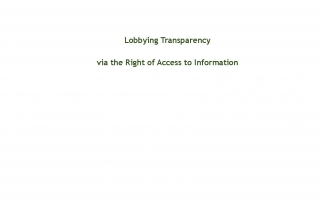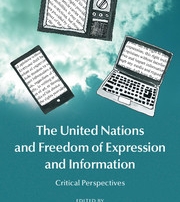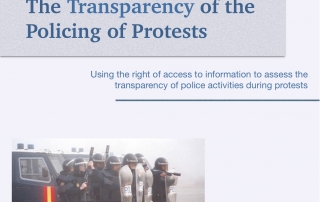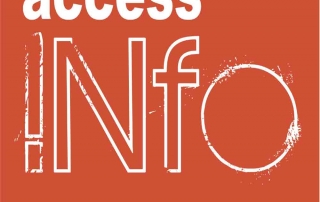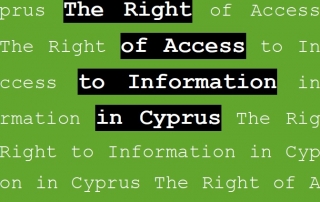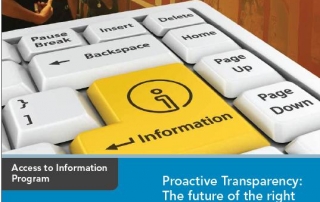Lobbying Transparency via RTI Laws
Helen Darbishire2018-11-13T09:46:14+01:00This document sets out the classes of information that should be made available by public bodies in order to get a full picture of the influence of interest groups, particularly lobbyists, on governmental and legislative decision making. You can download the report in PDF and in Word . If you have any comments about the contents of this report, we are happy to hear from you. For a member of the public to be able to follow how a particular decision is being or was taken, it is essential that there be full transparency about the influences which shaped that

